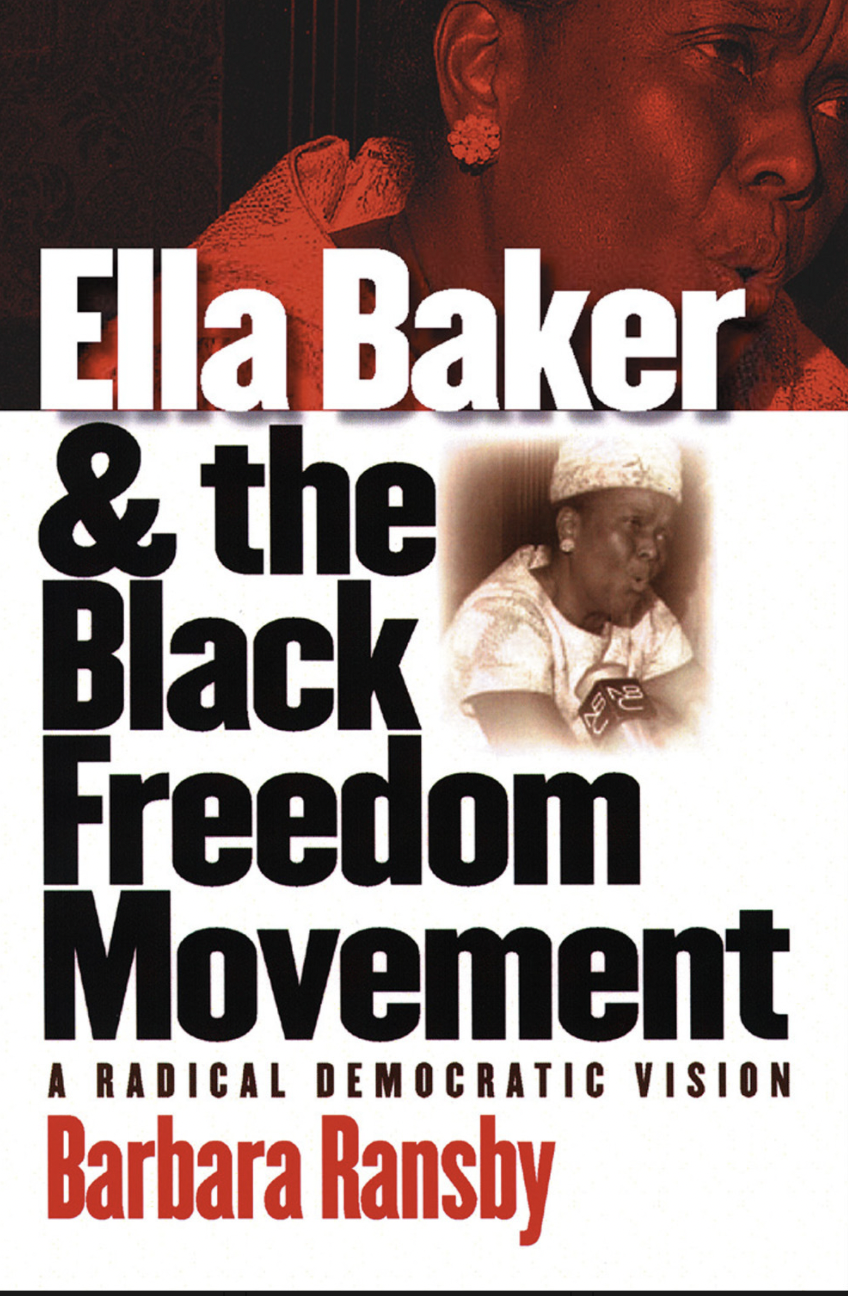By Darshai Hollie

The book Ella Baker and the Black Freedom Movement from pages 1to 170 was very informative and enjoyable. Baraba Ransby is a historian, feminist activist, and professor of History, Gender and Women Studies, and Black Studies at the University of Illinois in Chicago. She focuses on the life of Ella Baker, who was a civil rights activist and human rights activist. Ransby described her as “an insurgent intellectual with a passion for justice and democracy”. Ransby highlights Baker’s radical thoughts and changes of the American structure such as legal institutions, political institutions, economic justice for the black poor working class, and fighting against colonialism and imperialism over the past fifty years. Due to the lack of documents and manuscripts such as a diary or letters that focus on Baker’s private life and the interpretation and critical analysis of Baker’s life, Ransby had to rely on her public speaking, interviews, FBI reports, and oral history interviews of her family and friends. She argues that Ella Baker’s political life and career influences contributed to a movement for radical change in America. The reason why she wrote this book was to afford Ella Baker her humanity and to understand the weaknesses and strengths she had and the failure and accomplishments that gave her an insight into who she was. The main themes that she talks about are how religion played a central role in black women’s sense of self, the southern migration to escape Jim Crow, and the importance of family, education, and language.

Throughout the book, Ransby also discussed Baker’s childhood upbringing, her education at Shaw University, and her migration to New York helped her develop a radical perspective and justice on race, sexism, the black working class. She primarily focuses on the religious aspect of Baker’s life and how she was supported by the community of Christian women such as her mom Anna Ross Baker, her grandmother Ella Jo, and her Aunt Eliza had deeply influenced Baker. Growing up in a black middle class, as Ransby stated, Ella was taught etiquette and was required to learn about female responsibilities and to practice their religion. Ella’s mother, Anna was a teacher, and she was a part of the Black Baptist Women Convention. According to Ransby, the organization challenged the image of church women and rejected the image of womanhood,, such as seeing women as saving rather than victims, rejecting women as being weak and fragile, and being willing to see women as strong, intelligent, and socially engaged. The black Baptist movement had a mission which was to service the community and serve those who are less unfortunate. Anna Baker identified that the movement had instilled these philosophies and activities onto Ella; this led Baker to develop her sense of services and ideologies. Furthermore, Ransby discussed the Great migration. How many southerners left the South to go to the North, or many of them left the rural area to go to the southern city to escape racism, job opportunities such as the Baker Family left North Carolina to go to Norfolk, Virginia. Additionally, Ella also migrated to New York after graduation, where she was introduced to aspects of ideologies and movements in the black community as well as the black diaspora such as Martin Garvey, and W.E.B DuBois .
Overall, I enjoyed reading these chapters and learning about the life of Ella Baker and how her upbringing influenced her perspective of radical changes. This reading showcased the personal experiences and organizations that Ella Baker valued and advocated for in the 20th century.

Leave a comment